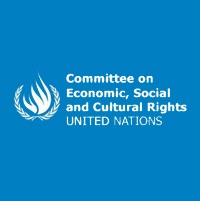
Ref: 103/2019
On 5 September, PCHR submitted a report to the Committee on Economic, Social and Cultural Rights ahead of Israel’s fourth periodic review during its 66th session. This submission focuses on Israel’s restrictions on the Palestinian patients from the Gaza Strip accessing adequate healthcare in hospitals in the West Bank, including East Jerusalem, Israel or abroad, which violates their right to health under Article 12 of the International Covenant on Economic, Social, and Cultural Rights .
Since Israel imposed its blockade on the Gaza in 2007, effectively restricting freedom of movement for persons and goods, Gaza’s health sector has been in constant crisis and deterioration. Severe restrictions on the import of dual use items, which prohibit the import of certain new medical equipment or spare parts to fix or maintain old equipment have hampered the work at local hospitals and centers. During this period, the Strip also witnessed three destructive offensives which resulted in extensive damage to vital health infrastructure. This left the health sector lacking adequate medical services to cope with the needs of 2 million Palestinians. The steep decline of Gaza’s healthcare and unavailability of specialized medical services increased the need for patients to be referred to hospitals in Israel and West Bank including East Jerusalem.
However, patients face many difficulties in obtaining an exit permit by the Israeli authorities to travel through Beit Hanoun (Erez) crossing. Patients can be denied an exit permit on the basis that medical treatment is available locally or that the patient’s case is not life-saving and only affects his/her “quality of life”. Moreover, the lengthy security-screening process for patients and their companions might result in the patients’ application being rejected or delayed during his/her treatment or/and towards the end of it. The Israeli authorities have also taken decisions which represent collective punishment, by banning first-degree relatives of Hamas and patients who have a relative residing in the West Bank without obtaining an Israeli permission, from travelling to receive medical treatment. Moreover, PCHR has documented the arrest and interrogation of many patients and their companions, and in some instances, some were blackmailed by the Israeli security officer in order to facilitate their medical process.
The submission also highlighted the situation of injured Great March of Return demonstrators, who have been denied exit permits to access specialized treatment, due to their participation in violent acts as claimed by the Israeli authorities. As a result many have had their lower limbs amputated. As of March 2019, according to PCHR’s documentation, 114 demonstrators have had their lower or upper limbs amputated including 14 children.
In light of the above, PCHR recommended to the Committee that it call upon the government of Israel to:
To read PCHR’s full submission, click here.